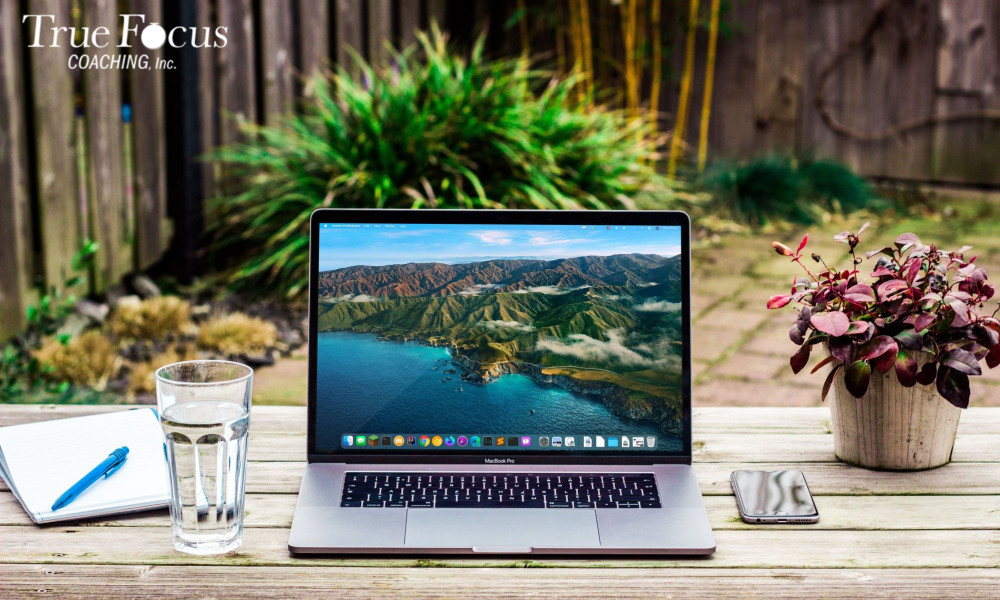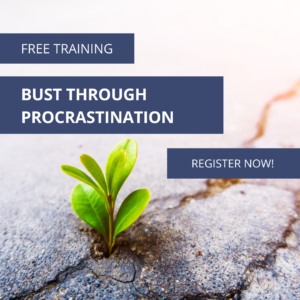Even if you’re more of an indoors person, you know that spending time outside can be restorative. Stress starts to melt away when you’re walking through a quiet forest, sitting in a park or standing by the water on a perfect summer day. Sometimes taking a walk around the block and feeling the breeze on your face is enough to improve your mood.
But for busy professionals who are already overwhelmed at work, “getting outdoors” might be limited to walking to and from a car between client meeting and errands. Spending more time outdoors might seem like it would interfere with getting everything done at work.
Don’t let it. Making time to be in nature improves the quality of your life, and that can only lead to good things at work and at home.
Getting outdoors needs to be part of your daily plan for this summer.
I’ve written recently about getting the most out of your summer, like by making a summer bucket list so you can enjoy the golden moments of the season. I’m here to help with the time management and productivity tools that give you time and space to enjoy everything on that bucket list—including spending as much time as possible outdoors.
June is Great Outdoors Month, and it’s perfectly timed. The whole summer stretches out in front of us. Build outdoor time into your daily schedule now, and you might find it’s a habit you don’t want to give up even when the weather turns colder.
Besides, couldn’t we all use some extra joy and stress relief right now? Even when the weather is beautiful, things are hard all around us. The news cycle is an endless parade of terrible and worrisome stories. The chronic stress of living through the pandemic is still affecting people more than two years in. It can all feel like too much to manage on top of your “normal” stress like family and community obligations, work deadlines and financial pressure.
Being Outdoors is Good For Your Health
We all know from personal experience that spending time outdoors is good for our physical and mental health, but there’s also a ton of research confirming it. Specifically, being in nature has benefits that may help with better time management and productivity. Here are just a few highlights:
- One study from the University of Michigan found that spending an hour in nature improved memory and attention span by 20 percent, even when people spent an hour outside in bad weather.
- Spending just 20 minutes sitting in a park improved subjective well-being and life satisfaction for participants in a study published in the International Journal of Environmental Health Research. In other words? Simply sitting outside for a bit could provide a mood reset when you’re hitting a wall with a tough problem at work.
- Listening to birds chirping might actually improve your ability to perform tasks, according to a study published in Psychonomic Bulletin & Review. Participants performed better on a series of cognitive tests after listening to 15 minutes of nature sounds, compared to listening to urban sounds.
- In the UK, getting outdoors may be just what the doctor ordered. Back in 2018, a pilot program begun in conjunction with the NHS allowed general practitioners in Scotland to literally prescribe nature as part of a patient’s treatment. A doctor might prescribe anywhere from 10 minutes to an hour of nature walking per day to a patient, depending on the person’s needs and abilities.
So getting outdoors boosts your memory, mood, mental and physical health, thereby helping with time management and productivity. It’s also completely free and anyone can do it at any time. But…. you’re so busy.
As you look ahead to another sunny summer, can you really afford to spend it all indoors stuck at your desk?
Spending time outdoors every day doesn’t have to keep you from getting things done at work. Here are three ways to make sure you have time for everything.
3 Tips for Balancing Outdoor Time and Work
1. Look for creative solutions that allow you to get work done outdoors.
If your work requires you to sit at a desk, going outdoors during the work day might feel like you’re automatically neglecting your responsibilities. It should be easier to “let” yourself head outside for a midmorning stroll or afternoon hike if you’re able to accomplish some necessary tasks at the same time. As you enjoy nature, use your phone to record yourself brainstorming ideas for upcoming projects or drafting reports or emails that you need to send. Transcription software can convert these audio recordings into text. Or, if you can’t work without your laptop, create an outdoor office with an umbrella and folding table in your yard.
2. Make a list of the specific outdoor activities that you want to do this summer.
Like I wrote about in the summer bucket list blog, the things that you want to happen this summer won’t happen unless you’re clear about what they are. You can’t plan for an activity that you haven’t identified. What kind of outdoor time do you want to enjoy this summer? A daily bike ride around the neighborhood? Hour-long hikes around a trail you love that’s 20 miles away? Maybe sitting on a bench with a book and a coffee is as outdoorsy as you get. Figure it out so you can schedule it.
3. Use flexible scheduling to plan for regular outdoor time.
Because you can’t count on the weather to cooperate with your plans, you need to build outdoor time into your daily and weekly plans. But be able to adjust those plans depending on the forecast. For example, you might include several blocks of time in your daily plan that are for unstructured activities like answering emails, returning phone calls, running errands and being outdoors. When your morning walk gets rained out, you can swap it with an afternoon block.
I know that building outdoor time into your daily and weekly plans might sound easy but be difficult to actually put into practice. It takes time to unlearn old time management habits, figure out where you’re wasting time and build a new way of doing things that gives you the time and space you need for the life you want.
If you need more intensive support with time management and productivity, I’m here. Join me and a small group of other business owners and professionals like you for a full year of coaching that will help you get where you want to go.
Time Mastery starts on July 1st! To figure out if this program is right for you, the first step is a free Strategy Session so we can talk about your specific goals. Click here to request yours.
Gratefully,
Sarah
- Overwhelmed? Here’s How to Stay Productive Between Now and Thanksgiving - October 22, 2025
- Reduce September Stress While Maximizing Q4 Productivity (and Strategizing for Q1) - September 19, 2025
- 5 Things to Expect in Fall 2025 (And Time Management Strategies to Navigate Them) - August 21, 2025



